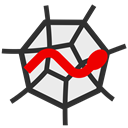Top Sage Alternatives for Scientific Computing and Mathematics
Sage is a powerful free open-source mathematics software system, licensed under the GPL. It expertly combines numerous existing open-source packages into a unified, Python-based interface, with its core mission being to provide a viable open-source alternative to commercial giants like Magma, Maple, Mathematica, and Matlab. While Sage is an excellent choice for many, users often seek Sage alternatives for various reasons, including specific feature requirements, platform preferences, or simply to explore different ecosystems. This article dives into some of the best alternatives available for your scientific computing and mathematical needs.
Exploring the Best Sage Alternatives
Whether you're looking for open-source solutions, specific programming languages, or environments tailored for particular types of analysis, this list offers a comprehensive overview of top contenders that can serve as excellent substitutes for Sage.

GNU Octave
GNU Octave is a highly regarded Sage alternative, particularly for those familiar with MATLAB. This free and open-source program is primarily designed for numerical computations and offers broad compatibility with MATLAB. It's available across multiple platforms including Mac, Windows, Linux, and BSD. A notable feature of Octave is its support for ANOVA tests, making it a robust choice for statistical analysis.

MATLAB
MATLAB, a commercial enterprise-class computing environment, is often considered a direct competitor and a powerful Sage alternative, especially for those requiring extensive engineering and scientific capabilities. It's available on Mac, Windows, Linux, Web, Android, iPhone, and iPad. Key features include Simulink for model-based design, batch plotting for data visualization, and an embedded debugger for efficient code development.

R (programming language)
For statistical computing and graphics, R is an exceptional free and open-source Sage alternative. As a GNU project, it's widely used in academia and industry and is similar to the S language. R supports Mac, Windows, Linux, and BSD platforms, offering powerful features like automatic data loading and extensive data mining capabilities through its vast package ecosystem.

Jupyter
Jupyter stands out as a free and open-source Sage alternative for interactive data science and scientific computing. It supports over 40 programming languages and is accessible on Mac, Windows, Linux, Web, and Cloudron. Its browser-based interface, interactive visualization tools, literate programming approach, and server-side capabilities make it incredibly versatile for collaborative and reproducible research.

Mathematica
Mathematica is a definitive commercial technical computing system and a formidable Sage alternative, excelling in areas like machine learning, neural networks, data science, and visualizations. Available on Mac, Windows, Linux, and Web, it boasts a comprehensive suite of features including symbolic computation, calculus solving, constructive geometry, equation solving, a graphing calculator, and advanced algebra functionalities.

SciPy & Numpy
SciPy and NumPy, often used together, form a powerful open-source Sage alternative for scientific computing in Python. These free and open-source libraries are essential for mathematics, science, and engineering applications. They run on Mac, Windows, and Linux and are fundamental for numerical operations and scientific algorithms within the Python ecosystem.

Scilab
Scilab is another strong free and open-source Sage alternative, offering a robust scientific software package for numerical computations. It provides a powerful open computing environment for various engineering and scientific applications. Scilab is available on Mac, Windows, and Linux, making it a versatile choice for a wide range of computational tasks.

Spyder
Spyder, previously Pydee, is a free and open-source Python development environment that serves as an excellent Sage alternative, especially for those seeking MATLAB-like features within Python. It's a lightweight software available on Mac, Windows, and Linux, providing a dedicated Python IDE and making it a comfortable environment for Python-based scientific programming.

Maxima
Maxima is a free and open-source Sage alternative focused on the manipulation of symbolic and numerical expressions. It supports differentiation, integration, Taylor series, Laplace transforms, and ordinary differential equations. Available on Mac, Windows, and Linux, Maxima's key features include powerful symbolic computation and algebra capabilities, making it ideal for advanced mathematical problems.

Julia
Julia is a high-level, high-performance dynamic programming language that offers a compelling open-source Sage alternative for technical computing. Its syntax is designed to be familiar to users of other technical computing languages. Julia is free and open-source, available on Mac, Windows, and Linux, and boasts features like automatic JIT compilation, a built-in compiler, and robust parallel computing capabilities, making it incredibly fast and efficient.
The world of scientific computing offers a diverse array of tools beyond Sage. Each Sage alternative presented here brings its unique strengths, whether it's specialized statistical analysis, robust symbolic manipulation, or high-performance numerical computation. We encourage you to explore these options and determine which best aligns with your specific project requirements, workflow, and preferred programming environment.